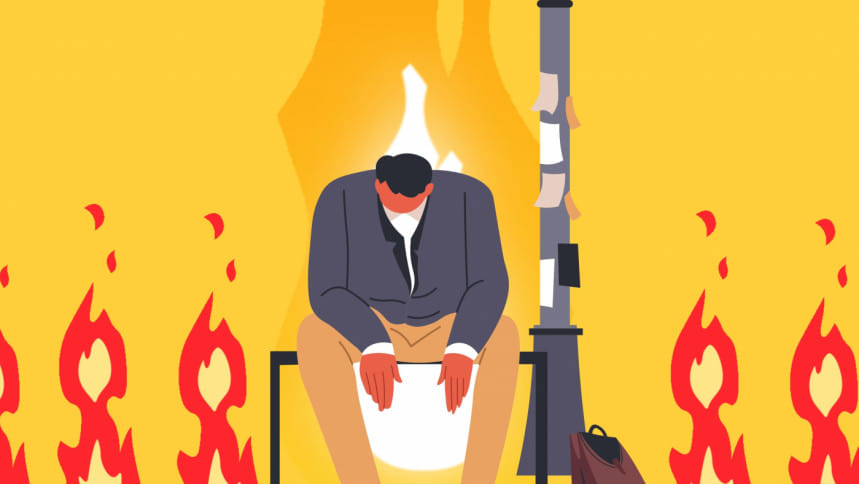Mass layoffs in big tech: What is even happening?

On Thursday, February 16, tech-giant Google laid off over 150 of its employees in Singapore, a part of a wider exercise of 12,000 layoffs worldwide. On February 17, Meta ranked thousands of its employees 'sub-par' in a performance review–a move many are considering as a 'background setting' for another wave of mass layoffs. Just a week before this, TikTok terminated the contracts of its 40 Indian employees, with many speculating the move as a 'retaliation' against the Indian government's decision to block the app in the country.
Combinedly the top tech companies—Meta, Microsoft and Google—have laid off around 50,000 staff all around the world in recent times, reports Forbes. All these layoffs may well be isolated incidents and each organisation may have their different reasonings, but there's one common thread that binds each of them: it's part of a distinct trend that has been recently sweeping through Silicon Valley.
The tech industry has long been seen as a beacon of innovation, constantly pushing the boundaries of what is possible through cutting-edge technology. However, in recent years, the industry has been plagued by a growing trend of mass layoffs. From small startups to large multinational corporations, tech companies of all sizes have been forced to let go of employees in droves, leaving many wondering why this is happening.
In May 2020, the ride-hailing company announced that it was cutting 3,700 jobs or around 14% of its global workforce. The move was part of a broader effort to reduce costs in the face of the Covid-19 pandemic.
Another example is Airbnb, which announced in May 2020 that it was cutting around 1,900 jobs or about 25% of its workforce. The company had been hit hard by the pandemic, with many customers cancelling their bookings and travel coming to a halt. The layoffs were seen as a necessary step to help the company weather the storm of the pandemic.
One of the primary reasons for mass layoffs in the tech industry is the ever-changing nature of the business. Companies are constantly adapting to new technologies and trends, which can lead to restructuring and downsizing. In some cases, companies merge with other firms, leading to redundancies in staff. In other cases, economic downturns may force companies to reduce their workforce to cut costs and remain competitive.
The Covid-19 pandemic has also had a significant impact on the tech industry, leading to a wave of layoffs across the sector. With many businesses struggling to stay afloat, companies have been forced to make difficult decisions about their staffing levels. Many have turned to mass layoffs to cut costs and preserve their bottom line.
But could there be more? A closer look at the race to develop their own AI may reveal an unsettling fact that these companies may simply just need more money. Microsoft recently invested heavily in ChatGPT to integrate it with its products and Google is on its way to launching its own AI with Bard.
"Over the past two years we've seen periods of dramatic growth. To match and fuel that growth, we hired for a different economic reality than the one we face today. I am confident about the huge opportunity in front of us thanks to the strength of our mission, the value of our products and services, and our early investments in AI. To fully capture it, we'll need to make tough choices," wrote Alphabet and Google CEO Sundar Pichai in a blog post.
Analysts fear that millions and billions are being invested in developing AI, but at the cost of the jobs of junior employees.
There is also the fact that just prior to the pandemic, the big tech companies were in a frenzied race to hire the top talents in the industry with lavish perks. In fact, the Silicon Valley lifestyle became somewhat of a myth. The companies also overspent on over-hiring and then the pandemic came with a reality check. However, once again, it was the junior employees who bore the brunt.
Automation and AI are also playing a role in replacing human employees. As AI and other forms of automation become more advanced, they are increasingly able to replace human workers in a variety of roles. For example, many companies are now using AI-powered chatbots to handle customer service inquiries, eliminating the need for human customer service representatives. Similarly, AI is being used to analyse vast amounts of data, making it possible to automate tasks that were previously performed by human analysts.
This trend is not limited to customer service and data analysis, however. Many tech companies are now looking to automate or outsource other roles, such as HR and marketing. This is because these roles are often seen as less critical to the success of the company, making them easier targets for automation or outsourcing. As a result, many employees in these roles are finding themselves out of a job, with no clear path forward.
The reasons behind these layoffs vary, but the consequences for those affected are significant and can be devastating. Many employees may find themselves without a job or a source of income, struggling to pay bills and support their families. For some, the experience can be traumatic, leading to feelings of depression, anxiety, and low self-esteem.
In addition to the personal toll, mass layoffs can also have wider economic consequences. When large numbers of people are laid off, it can lead to a decrease in consumer spending, as people become more cautious with their money. This, in turn, can have a ripple effect on other businesses, leading to further layoffs and economic contraction.
In response to the trend of mass layoffs, some tech companies have implemented programs to help affected employees. For example, some companies offer severance packages or outplacement services to help laid-off workers find new jobs. Others may provide job training or education programs to help workers develop new skills and transition to new careers.
As the tech industry continues to evolve, it is likely that we will see more mass layoffs in the coming years. While it is impossible to predict the exact reasons for these layoffs or the impact they will have, it is clear that they will continue to be a painful reality for many employees in the sector.

 For all latest news, follow The Daily Star's Google News channel.
For all latest news, follow The Daily Star's Google News channel. 








Comments